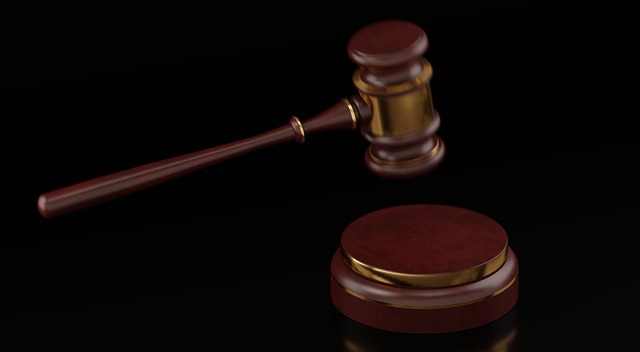Finance crime probes uncover illegal activities in banking, investments, and insurance. Class action lawsuits empower individuals to collectively fight against powerful adversaries for shared causes. To join, research specialized legal firms, understand case details, meet eligibility criteria, gather documents, and collaborate with the legal team. This process ensures accountability, transparency, and justice, while providing resources for damage recovery. Following specific steps, including staying informed, evaluating eligibility, and collaborating with other plaintiffs, is crucial before joining a valid class action lawsuit against financial institutions or individuals involved in fraud.
In the realm of financial crime, probes are instrumental in uncovering wrongdoings and holding offenders accountable. This comprehensive overview delves into the intricacies of finance crime probes, with a focus on class action lawsuits as a powerful tool for justice. Learn how these legal initiatives facilitate collective action against culpable entities. Explore practical steps to identify and join a valid class action lawsuit, understanding the legal procedures and potential rewards or risks involved.
- Understanding Finance Crime Probes: A Comprehensive Overview
- The Role of Class Action Lawsuits in Holding Offenders Accountable
- Steps to Identify and Join a Valid Class Action Lawsuit
- Legal Procedures and Considerations for Participants
- Potential Rewards and Risks: What to Expect in Finance Crime Cases
Understanding Finance Crime Probes: A Comprehensive Overview

Finance crime probes are investigations into illegal activities that occur within the financial sector, encompassing banking, investments, and insurance. These complex inquiries are typically initiated in response to suspicious transactions, fraudulent schemes, or violations of financial regulations. They involve a meticulous process of gathering evidence, analyzing financial records, and interviewing individuals involved to uncover the truth behind illicit financial practices. Understanding these probes is crucial for anyone seeking justice, as they play a pivotal role in holding financial institutions and individuals accountable for their actions.
For those interested in participating in legal proceedings related to finance crime, joining a class action lawsuit can be a significant step. These lawsuits are collective efforts where numerous individuals or entities unite to take on a common adversary, often large corporations or wealthy individuals. By joining such a lawsuit, you contribute to a larger cause and have the potential for collective compensation if the case is successful. Steps to join include researching legal firms specializing in class action litigation, understanding the specific case details, assessing eligibility criteria, and actively engaging with the legal team to ensure your rights are protected throughout the process. This proactive approach not only facilitates justice but also sends a strong message to the philanthropic and political communities about the importance of transparency and accountability in high-stakes cases.
The Role of Class Action Lawsuits in Holding Offenders Accountable

Class Action Lawsuits play a pivotal role in holding offenders accountable for financial crimes, such as white collar offenses. These lawsuits offer a powerful tool to combat fraud and corruption by allowing affected individuals to join forces and take collective action against the perpetrators. By pooling their resources and expertise, plaintiffs can effectively challenge complex criminal schemes that often span across the country and involve all stages of the investigative and enforcement process.
Individuals considering participation in a class action lawsuit should follow specific steps to ensure inclusion and maximize their potential recovery. This typically involves staying informed about the case, identifying if they meet eligibility criteria, and promptly contacting legal counsel specializing in such matters. The process entails gathering relevant documents, providing detailed information about losses incurred, and working collaboratively with other plaintiffs throughout the litigation. By joining a class action lawsuit, victims not only contribute to holding offenders accountable but also gain access to legal resources that can help them recover damages and seek justice for their experiences.
Steps to Identify and Join a Valid Class Action Lawsuit

Identifying and joining a valid class action lawsuit involves several crucial steps. Firstly, legal experts recommend thoroughly researching ongoing cases to ensure their legitimacy. This includes verifying the lead plaintiffs’ claims, understanding the nature of the crime, and assessing the reputation of the law firms handling the case. Check if the suit has gained any significant traction in the media or legal circles, as this can indicate its validity and potential for success.
Once a promising case is identified, individuals who believe they have been affected by the respective business’s alleged misconduct should gather relevant documents and evidence. This may include financial records, contracts, or communications related to the crime. After completing these initial steps, potential plaintiffs can file a motion to join the class action lawsuit. Across the country, courts typically require a clear demonstration of how the individual’s claims align with the broader case, ensuring that their inclusion will not unduly complicate the proceedings and facilitating a complete dismissal of all charges against the target business.
Legal Procedures and Considerations for Participants

When involved in a finance crime probe, understanding the legal procedures and considerations is paramount for participants considering their options. The first step for those interested in joining a class action lawsuit is to thoroughly research the case and assess their potential involvement. This involves reviewing the allegations against the targeted entities and evaluating whether their experiences align with the claims being made.
The process of joining a class action requires individuals to take specific steps, such as gathering relevant documentation and evidence that support their participation. It’s important to consult with an experienced attorney who specializes in these cases. Legal professionals can guide participants through the complexities, ensuring they understand their rights and obligations while helping them navigate the system. Across the country, many law firms offer pro bono services or initial consultations to assist clients in avoiding indictment by thoroughly examining the legal merits of their claims.
Potential Rewards and Risks: What to Expect in Finance Crime Cases

When it comes to finance crime probes, potential rewards can be significant. Successful cases often lead to substantial financial recoveries for affected individuals and businesses. These recoveries can range from direct compensation for financial losses to punitive damages designed to deter future misconduct. Additionally, joining a class action lawsuit against financial institutions or individuals involved in fraudulent activities can offer a powerful platform for accountability and justice. By pooling resources and sharing legal strategies, plaintiffs can strengthen their case and increase the likelihood of a favorable outcome.
However, finance crime cases also come with risks. They are often complex and require extensive legal expertise to navigate. The process may involve lengthy investigations, rigorous document reviews, and expert testimony. Moreover, the outcomes are never guaranteed; even with strong evidence, cases can be settled for less than expected or result in acquittals due to technicalities or changes in legislation. Nevertheless, understanding these potential rewards and risks is a crucial step for anyone considering joining a class action lawsuit, such as those that involve general criminal defense strategies across the country.
Finance crime probes, through class action lawsuits, offer a powerful tool for holding offenders accountable and securing justice. By understanding the legal procedures and joining valid class action lawsuits (Steps to Join a Class Action Lawsuit), individuals can play a crucial role in achieving potential rewards while mitigating risks associated with these complex cases. This comprehensive overview highlights the importance of navigating these steps thoughtfully, ensuring fair outcomes for all involved.






